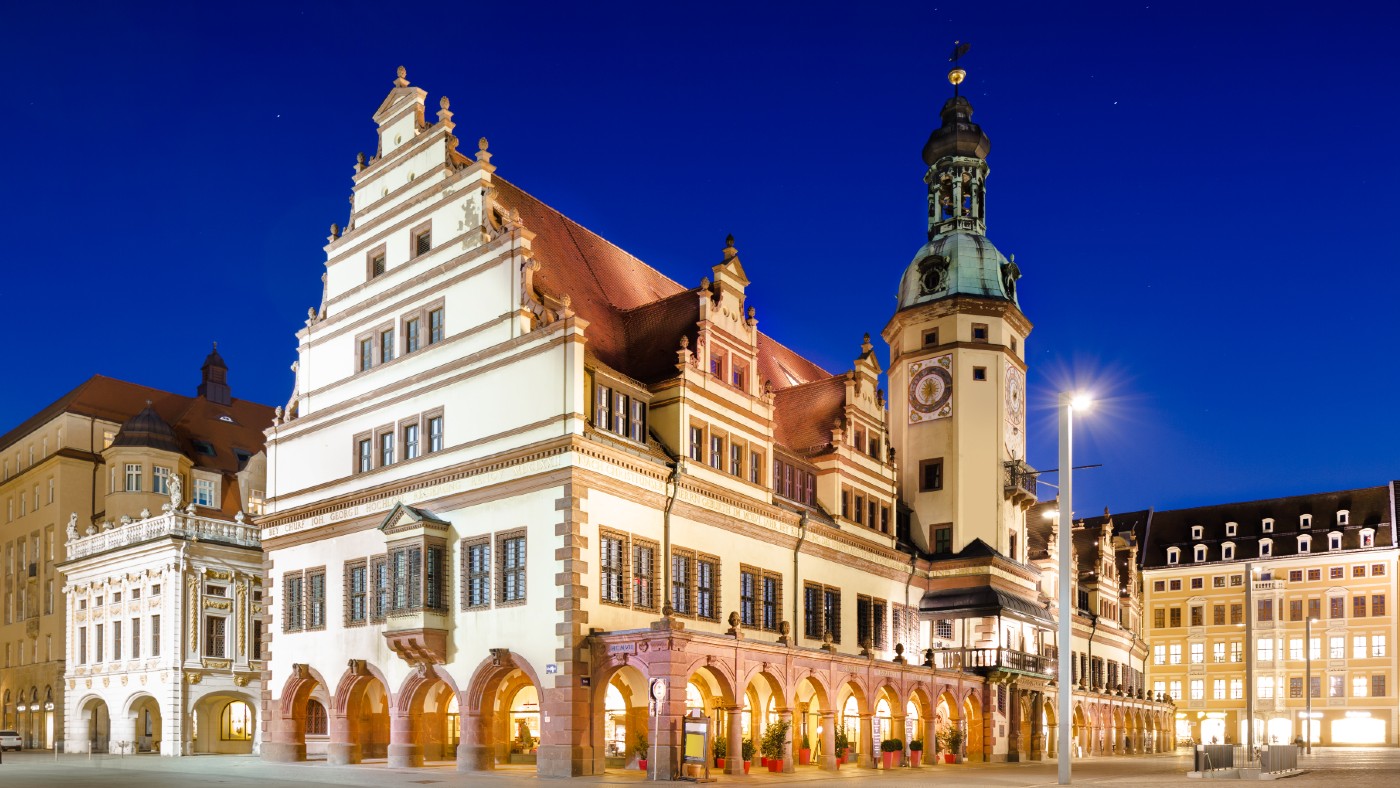Trip of the week: in search of J.S. Bach in Leipzig
Visit this German city for its superb musical heritage, old cafés and food

A free daily email with the biggest news stories of the day – and the best features from TheWeek.com
You are now subscribed
Your newsletter sign-up was successful
Although it’s now being referred to as the “new Berlin”, Leipzig isn’t all that prepossessing: it is a “mishmash” of a city marred by centuries of “destruction and erasure, rebuilding and renewal”. “It’s as if Leipzig is still recovering from its own history.” But there are good reasons to visit, says James Runcie in the Financial Times – including its superb musical heritage.
Johann Sebastian Bach came to work here in 1723, at the age of 38, and stayed until his death in 1750. He was the cantor, or choirmaster, of the church of St Thomas, which still stands today, and while Leipzig has changed a lot since then, other illuminating traces of the city he knew remain.
St Thomas’s is a “barnlike” late-Gothic hall-church with two organs – a reminder that when Bach wrote the St Matthew Passion for two choirs and two orchestras, he was producing “antiphonal music for this exact location”. He was originally buried in another church nearby, but his bones were moved here following the Allied bombing of 1943, and now lie in a vault in the nave. His house no longer stands, but a trip to the Altes Rathaus (the Old Town Hall) evokes the travails of his life, with its sour-faced portraits of town dignitaries – the kind of men he railed against when he felt he wasn’t getting the “money or attention” he deserved.
The Week
Escape your echo chamber. Get the facts behind the news, plus analysis from multiple perspectives.

Sign up for The Week's Free Newsletters
From our morning news briefing to a weekly Good News Newsletter, get the best of The Week delivered directly to your inbox.
From our morning news briefing to a weekly Good News Newsletter, get the best of The Week delivered directly to your inbox.
For a lighter insight into the great composer’s daily experience, take a food tour. Bach loved Gose, a sour wheat beer many find fairly “revolting”. You could try it at the tavern of Gosenschenke Ohne Bedenken.
At Auerbachs Keller (where Faust drinks in Goethe’s 1808 play), order Leipziger Allerlei, which is “the kind of food Bach ate”: a “melange” of peas, asparagus, morels, cabbage and cauliflower with bread dumplings. And stop off at one of the city’s old cafés – Bach seems to have loved coffee and even wrote an amusing “mini-operetta”, the Coffee Cantata, about it.
For details of the Leipzig musical trail visit leipzig.travel
A free daily email with the biggest news stories of the day – and the best features from TheWeek.com
-
 ‘Those rights don’t exist to protect criminals’
‘Those rights don’t exist to protect criminals’Instant Opinion Opinion, comment and editorials of the day
-
 Key Bangladesh election returns old guard to power
Key Bangladesh election returns old guard to powerSpeed Read The Bangladesh Nationalist Party claimed a decisive victory
-
 Judge blocks Hegseth from punishing Kelly over video
Judge blocks Hegseth from punishing Kelly over videoSpeed Read Defense Secretary Pete Hegseth pushed for the senator to be demoted over a video in which he reminds military officials they should refuse illegal orders
-
 Samurai: a ‘blockbuster’ display of Japan’s legendary warriors
Samurai: a ‘blockbuster’ display of Japan’s legendary warriorsThe Week Recommends British Museum show offers a ‘scintillating journey’ through ‘a world of gore, power and artistic beauty’
-
 BMW iX3: a ‘revolution’ for the German car brand
BMW iX3: a ‘revolution’ for the German car brandThe Week Recommends The electric SUV promises a ‘great balance between ride comfort and driving fun’
-
 Arcadia: Tom Stoppard’s ‘masterpiece’ makes a ‘triumphant’ return
Arcadia: Tom Stoppard’s ‘masterpiece’ makes a ‘triumphant’ returnThe Week Recommends Carrie Cracknell’s revival at the Old Vic ‘grips like a thriller’
-
 My Father’s Shadow: a ‘magically nimble’ love letter to Lagos
My Father’s Shadow: a ‘magically nimble’ love letter to LagosThe Week Recommends Akinola Davies Jr’s touching and ‘tender’ tale of two brothers in 1990s Nigeria
-
 Send Help: Sam Raimi’s ‘compelling’ plane-crash survival thriller
Send Help: Sam Raimi’s ‘compelling’ plane-crash survival thrillerThe Week Recommends Rachel McAdams stars as an office worker who gets stranded on a desert island with her boss
-
 Book reviews: ‘Hated by All the Right People: Tucker Carlson and the Unraveling of the Conservative Mind’ and ‘Football’
Book reviews: ‘Hated by All the Right People: Tucker Carlson and the Unraveling of the Conservative Mind’ and ‘Football’Feature A right-wing pundit’s transformations and a closer look at one of America’s favorite sports
-
 Catherine O'Hara: The madcap actress who sparkled on ‘SCTV’ and ‘Schitt’s Creek’
Catherine O'Hara: The madcap actress who sparkled on ‘SCTV’ and ‘Schitt’s Creek’Feature O'Hara cracked up audiences for more than 50 years
-
 6 gorgeous homes in warm climes
6 gorgeous homes in warm climesFeature Featuring a Spanish Revival in Tucson and Richard Neutra-designed modernist home in Los Angeles